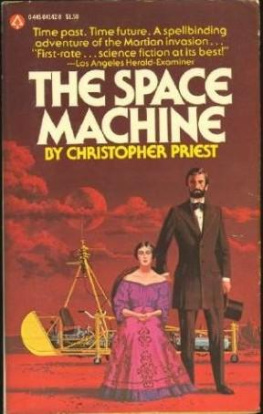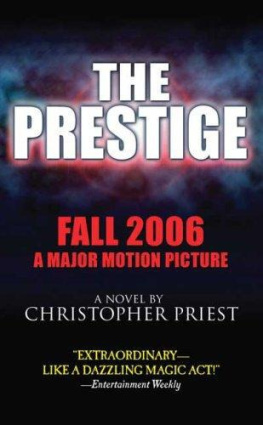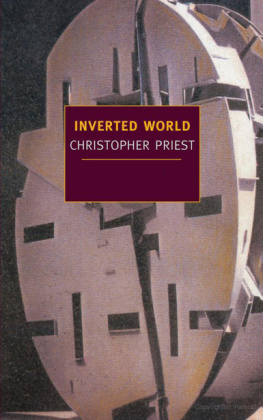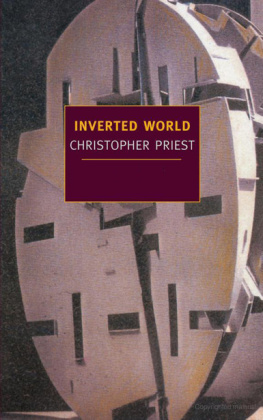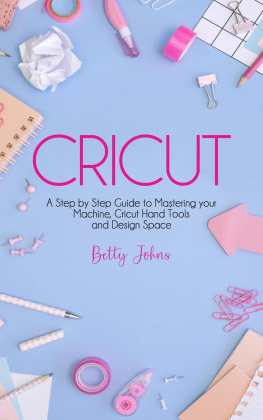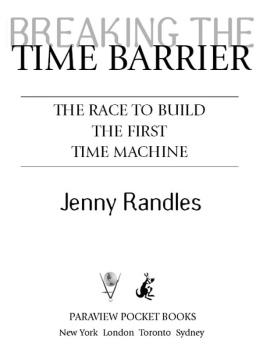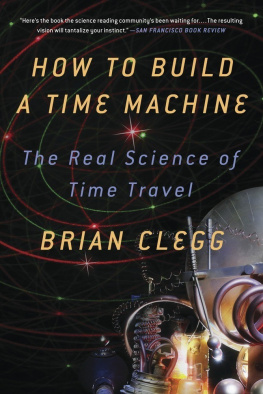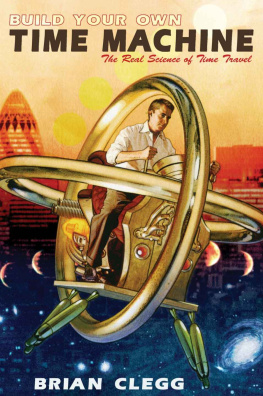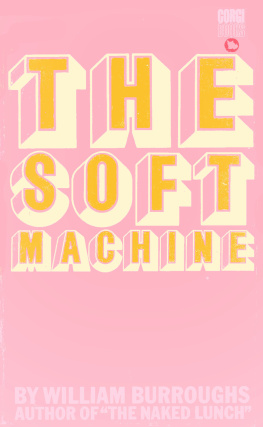The Space Machine
(A Scientific Romance)
by Christopher Priest
Chapter One
THE LADY COMMERCIAL
In the April of 1893 I was staying in the course of my business at the Devonshire Arms in Skipton, Yorkshire. I was then twenty-three years of age, and enjoying a modest and not unsuccessful career as commercial representative of the firm of Josiah Westerman Sons, Purveyors of Leather Fancy Goods. Not much will be said in this narrative of my employment, for even at that time it was not my major preoccupation, but it was instrumental, in its inglorious fashion, in precipitating the chain of events which are the major purpose of my story.
The Devonshire was a low, grey-brick commercial hotel, threaded with draughty and ill-lit corridors, drab with ageing paint and dark-stained panelling. The only congenial place in the hotel was the commercials lounge, for although it was small and burdened with furniturethe over-stuffed easy chairs were placed so close together it was scarcely possible to walk between themthe room was warm in winter and had the advantage of gas-mantle lighting, whereas the only sources of illumination in the bedrooms were dim and smoky oil-lamps.
During the evenings there was little for a resident commercial to do but stay within the confines of the lounge and converse with his colleagues. For me, the hour between the completion of dinner and nine p.m. was the one that made me the most impatient, for by long-observed tacit agreement no one would smoke between those times, and it was the accepted period for conversation. At nine, though, the pipes and cigars would appear, the air would slowly turn a suffocating blue, heads would lean back on the antimacassars and eyes would close. Then, unobtrusively, I would perhaps read for a while, or write a letter or two.
On the evening of which I am particularly thinking I had been for a short stroll after dinner, and had returned to the hotel before nine. I made a brief visit to my room to don my smoking-jacket, then went to the ground floor and entered the commercials lounge.
Three men were already there, and although it was still only seven minutes before nine I noticed that Hughes, a representative from a Birmingham machine-tool manufacturer, had started his pipe.
I nodded to the others, and went to a chair in the furthest comer of the room.
At nine-fifteen, Dykes came into the lounge. Dykes was a young man of about my own age, and although I had affected no interest in him it was his wont to address me in some confidence.
He came directly to my corner and sat opposite me. I pulled down the top leaf over the letter I had been drafting.
Will you smoke, Turnbull? he said to me, offering his cigarette case.
No thank you. I had smoked a pipe for a while, but had desisted for more than a year.
He took a cigarette for himself, and made a display of lighting it. Like me, Dykes was a commercial representative, and often declared I was too conservative in my outlook. I was usually entertained by his outgoing manner, in the way one may enjoy the excesses of others.
I hear theres a lady commercial in tonight, he said casually now, but leaning towards me slightly to add emphasis to his words. What do you make of that, Turnbull?
You surprise me, I admitted. Are you sure of that?
I came in late this evening, he said, lowering his voice. Happened to glance at the register. Miss A. Fitzgibbon of Surrey. Interesting, wouldnt you say?
Somewhat aloof, as I saw myself to be, from the day-to-day concerns of my fellow commercials, I was nevertheless interested by what he said. One cannot help but become aware of the lore of ones own occupation, and it had long been rumoured that women were now being employed as representatives. I had never before met one myself, but it seemed logical that sales of certain requisitesshall we say of a toilette or boudoir naturemight be better negotiated by women. Certainly, some of the stores I called at employed women buyers, so there was no precedent barring their entry into the sales aspect of a transaction.
I glanced over my shoulder, although I knew that she could not have entered the lounge unnoticed.
I havent seen her, I said.
No, and were not likely to! Do you think that Mrs Anson would allow a young lady of gentle breeding into a commercial lounge?
So you have seen the lady? I said.
Dykes shook his head. She dined with Mrs Anson in the coffee-room. I saw a tray being taken there.
I said, for my interest was persisting: Do you suppose that what is said about lady commercials has any substance?
Undoubtedly! said Dykes at once. No profession for a gentlewoman.
But you said that this Miss Fitzgibbon was a gentle
A euphemism, dear chap. He leaned back in his easy chair, and drew pleasurably on his cigarette.
I usually found Dykes an amusing companion, for his ready abandonment of social niceties often meant that he would regale me with bawdy anecdotes. These I would listen to in envious silence, as most of my time was passed in enforced solitude. Many commercials were bachelorsperhaps by natureand the life of constant movement from one town to another led to an inability to make permanent ties. Thus, when word that some firms now employed ladies as their representatives was rumoured, the smoking-rooms and commercial lounges of hotels all over the country had been sibilant with salacious speculation. Dykes himself had been a source of much information on the subject, but as time passed it became clear that there was to be no substantial change to our way of life. Indeed, this was the very first occasion on which I had even been aware that a lady commercial was staying in the same hotel as myself.
You know, Turnbull, I fancy I shall introduce myself to Miss Fitzgibbon before the evening is out.
But what will you say? Surely you would require an introduction?
That will be simple to arrange. I shall merely go to the door of Mrs Ansons sitting-room, knock boldly, and invite Miss Fitzgibbon to take a short stroll with me before turning in.
I My sentence was cut short, for I had suddenly realized that Dykes could not be in earnest. He knew the proprietress of this hotel as well as I, and we both understood what kind of reception such a move could expect. Miss Fitzgibbon might well be an Emancipationist, but Mrs Anson was still firmly rooted in the 1860s.
Why should I describe my strategy to you? Dykes said. We shall both be here until the weekend; I shall tell you then how I have fared.
I said: Could you not somehow discover which firm she represents? Then you could contrive a chance meeting with her during the day.
Dykes smiled at me mysteriously.
Maybe you and I think alike, Turnbull. I have already obtained that information. Would you care to place a small wager with me, the winner being the man who first speaks to the lady?
I felt my face reddening. I do not bet, Dykes. Anyway, it would be foolish for me to compete with you, since you have an advantage.
Then I shall tell you what I know. She is not a commercial at all, but an amanuensis. She works for no firm, but is in the personal employ of an inventor. Or so my informant tells me.
An inventor? I said, disbelieving. You cannot be serious!
That is what I have been told, Dykes said. Sir William Reynolds by name, and a man of great eminence. I know nothing of that, nor care, for my interests lie with his assistant.
I sat with my writing-tablet on my knees, quite taken aback by this unexpected information. In truth I had no interest in Dykess nefarious designs, for I tried at all times to conduct myself with propriety, but the name of Sir William Reynolds was a different matter.
I stared at Dykes thoughtfully while he finished his cigarette, then stood up.


